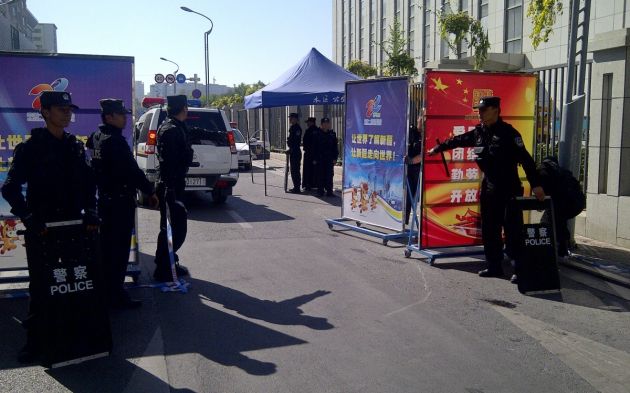China jails Uighur scholar for life, saying he 'advocated' Xinjiang secession

A court in China has found a prominent Uighur academic and scholar guilty of separatism in the restive north western Xinjiang region and jailed him for life, his lawyer says.
Ilham Tohti was detained in January and denied the charges against him. The European Union, United States and the United Nations have all called for his release, the BBC reported.
Amnesty International strongly condemned the sentence handed down to Tohti saying charges of "separatism" is an affront to justice.
"This shameful judgement has no basis in reality. Ilham Tohti worked to peacefully build bridges between ethnic communities and for that he has been punished through politically motivated charges," said William Nee, China Researcher at Amnesty International.
"Tohti is a prisoner of conscience and the Chinese authorities must immediately and unconditionally release him."
Academic Tohti, aged 44, had spoken out on the government's policies towards the Muslim Uighur minority in the restive region of Xinjiang.
"The wide attention of the case has made them come down especially heavy with the sentence," Tohti's lawyer Li Fangping told Australia's Fairfax Media shortly after the verdict was announced.
"It shows their determination to send a message."
Government prosecutors accused Ilham Tohti of organizing violence in the Muslim-dominated region.
"[They] accused Ilham of being the leader of a group of eight people advocating secession," his lawyer Li Fangping said.
The secession movement was allegedly based in the region's capital Urumqi, where two attacks by separatists have occurred this year.
Li said he was anticipating a guilty verdict from the court.
Defense lawyers argued that Tohti had merely given constructive criticism on the prevailing repression of the government against Uighurs.
Tohti, who taught ethnic nationalities at Minzu University in Beijing, operated a website that sought understanding between the region's Han Chinese, the majority, and Muslim Uighurs, a minority.
The website was ordered shut by the government in June.
The lectures and posts he made were cited as evidence of his purported crime, his lawyer pointed out.
'ILLEGAL FUNDRAISING'
Tohti's trial came a month after another scholar, Uighur linguist Abduweli Ayup, was sentenced to 18 months in prison for "illegal fundraising."
Alim Seytoff, president of the American Uyghur Association in Washington DC feared that Tohti's trial would continue to stoke tension in the restive region where attacks and riots have claimed over 300 lives since April last year.
"Punishing peaceful Uyghur scholars, like Abduweli Ayup and Ilham Tohti, who have worked within the Chinese system and entirely within the confines of China's laws, will not foster trust or good relations between the Chinese state and Uighur people," said Seytoff.
Human Rights Watch said Tohti "has consistently, courageously and unambiguously advocated peacefully for greater understanding and dialogue between various communities, and with the State."
Foreign diplomats who traveled to Urumqi to witness the trial were barred from entering, according to a European Union spokesman in Beijing.
Four relatives including Tohti's wife were however allowed to attend.
